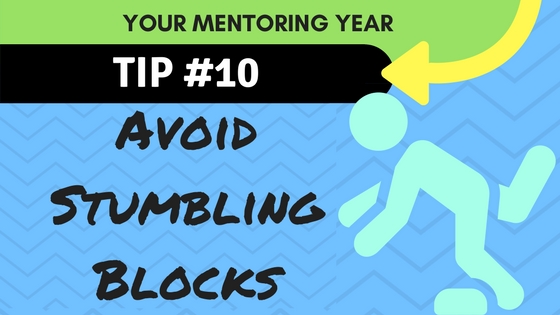by Center for Mentoring Excellence | Jan 25, 2018 | Advice for Leaders, Assumption Hunting, Checking Out Assumptions, Facilitating Learning, Goal Setting Conversation, Group Mentoring, Growth and Development, Making Mentoring Work For You, Mentoring Communication, Mentoring Questions, Mentoring Relationships, Mentoring Training, Supporting Mentors and Mentees

One of the biggest stumbling blocks for mentoring pairs is staying on track over the course of the year.
To make sure you avoid this potential trap, make sure you determine how to manage your mentoring time:
How often and how long will you meet?
How will you handle and reschedule cancelled meetings? Consider using an agenda, preparation, and journal as vehicles for maximizing learning. Your schedule holds and organizes your most valuable asset – your time.
For new mentor/mentee relationships, the development of an agreed-upon framework will not only set expectations, but also support focused meeting times so you both get the most out of your time together.
For more experienced pairs, referring back to the framework (or creating a new one) is a great way to a mentoring relationship back on track.
Ready for more? Review the Mentor’s Guide: Facilitating Effective Learning Relationships for more support, insight and tools.
by Center for Mentoring Excellence | Mar 29, 2014 | Group Mentoring
Group mentoring offers some very rich opportunities for promoting group and individual learning.
While group mentoring multiplies the learning, it can only do so when members of the group intentionally and effectively work at strengthening relationships between and among themselves.
What are some of the most common pitfalls to avoid when it comes to group mentoring?
 1. Jumpstarting the process without first building trust. Too often group mentoring participants — particularly peer mentors — are so eager to get started that they jump right into mentoring without taking enough time to establish and build trust among themselves. In group mentoring, all mentoring partners must feel safe before they can feel comfortable enough to be open with one another and to experience significant learning.
1. Jumpstarting the process without first building trust. Too often group mentoring participants — particularly peer mentors — are so eager to get started that they jump right into mentoring without taking enough time to establish and build trust among themselves. In group mentoring, all mentoring partners must feel safe before they can feel comfortable enough to be open with one another and to experience significant learning.
 2. Failure to acknowledge difference. It is easy to assume that by virtue of being in a group, group members share common interests. While it is quite true that they may share some things in common, they are unique individuals and each brings who they are into the relationship. When members fail to understand their own and each other’s’ uniqueness, they miss out on the opportunity to learn from different perspectives.
2. Failure to acknowledge difference. It is easy to assume that by virtue of being in a group, group members share common interests. While it is quite true that they may share some things in common, they are unique individuals and each brings who they are into the relationship. When members fail to understand their own and each other’s’ uniqueness, they miss out on the opportunity to learn from different perspectives.
 3. Not fully committed to the process. When individuals are required to participate in group mentoring, they may fail to engage fully in the process. They may choose instead to sit back passively or withhold their opinions. Inevitably, it is the group that misses out. Lack of engagement impacts the learning of the entire group.
3. Not fully committed to the process. When individuals are required to participate in group mentoring, they may fail to engage fully in the process. They may choose instead to sit back passively or withhold their opinions. Inevitably, it is the group that misses out. Lack of engagement impacts the learning of the entire group.
 4. Failure to engage in conversation. Mentoring groups may sometimes say that they engage in “conversation.” What they are actually doing, though, is participating in a series of transactions or interactions. It is only when mentoring partners fully engage in conversation that deeper insights emerge. Conversation that demands collaborative engagement accelerates learning and takes group mentoring to a whole new level.
4. Failure to engage in conversation. Mentoring groups may sometimes say that they engage in “conversation.” What they are actually doing, though, is participating in a series of transactions or interactions. It is only when mentoring partners fully engage in conversation that deeper insights emerge. Conversation that demands collaborative engagement accelerates learning and takes group mentoring to a whole new level.







